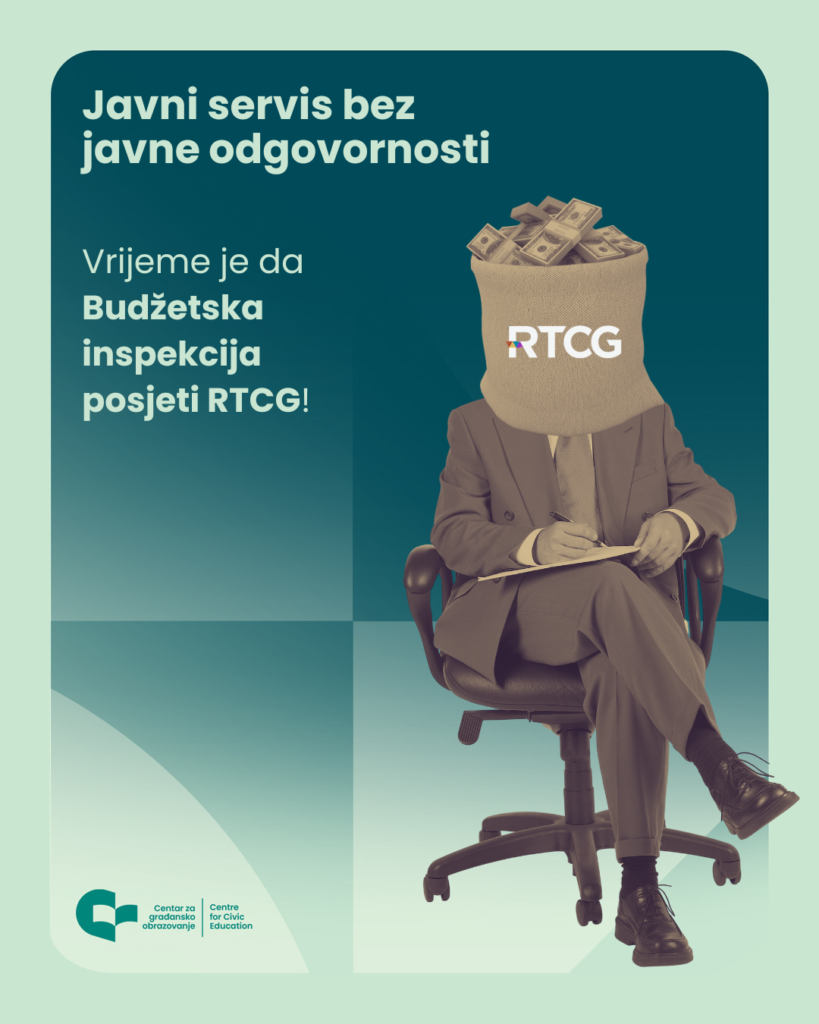Centre for Civic Education (CCE) once again expresses serious concern over the manner in which the controversial leadership of Radio and Television of Montenegro (RTCG) is managing this public-interest institution, particularly regarding financial operations. In addition to the already known violations of professional and ethical standards, the increasingly evident practice of arbitrary spending of public funds raises further alarm.
CCE reminds that RTCG is predominantly funded from the state budget, i.e., by the taxpayers of Montenegro. In such circumstances, every suspicion regarding the legality and transparency of its operations must prompt an urgent institutional response. Furthermore, RTCG is increasingly appearing as a negative point in reports by European Union institutions, and the current RTCG Council continues to face serious allegations, including the multiple unlawful appointments of Boris Raonić as Director General.
This week’s public statement by the former Deputy Chair of the RTCG Council, Marijana Camović Veličković, has raised new questions regarding the (il)legality and lack of transparency in the financial management of the RTCG Public Broadcaster. This particularly refers to data indicating arbitrary and unlawful determination of salaries for the Director General and his deputies, continuous payments of maximum variable bonuses without clear criteria or performance evaluations, as well as decisions that further burden RTCG’s budget, including proposals for new increases in coefficients. In light of all this, the CCE has submitted a formal initiative to the Ministry of Finance, specifically to the Budget Inspectorate, to urgently and comprehensively audit RTCG’s financial operations, which amount to over EUR 20 million annually, primarily from the state budget. The audit should include salary payments, the internal methodology for calculating variable pay, as well as any attempts to conceal irregularities through formal acts of the management that are increasingly pushing the limits of arbitrary decision-making.
Camović Veličković has internally and publicly pointed out these and other irregularities, fighting a difficult battle to uphold the legality and professionalism of RTCG. Her experience clearly indicates the necessity of stronger reactions from the competent state institutions.
CCE expects the Budget Inspectorate to demonstrate agility and responsibility, and for the audit results to be made publicly available and followed by concrete institutional measures if irregularities are confirmed. We also call on the Parliament of Montenegro to proactively open this issue through its relevant committees and demonstrate that the oversight role of Parliament has not been forgotten in our political system.
CCE maintains that the citizens of Montenegro have the right to a public service that works in their interest, not in the interest of privileged individuals or groups.
Nikola Obradović, Programme Associate

